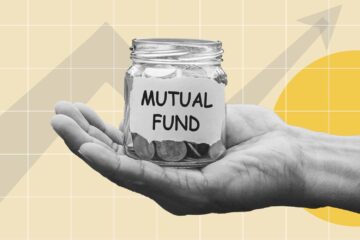Two Wheeler Loan Interest Rates Offered By Top Banks and NBFCs

Two-wheeler loans have become a popular financing option for individuals seeking a motorcycle or scooter. These loans make it possible to purchase a two-wheeler without the need for a large upfront payment. One of the crucial aspects of any loan is the interest rate, as it significantly affects the total cost of borrowing.
In this article, we will explore the typical two wheeler loan interest rate offered by leading banks and Non-Banking Finance Companies (NBFCs).
Understanding Two-Wheeler Loans
Before we delve into the specific interest rates offered by financial institutions, let’s briefly review what two-wheeler loans are. A two-wheeler loan is a financial product that allows individuals to purchase a motorcycle or scooter by borrowing money from a lender. The borrower then repays the loan amount over a predetermined period, typically in the form of monthly installments, which include both the principal amount and interest.
Two-wheeler loans are a convenient option for those who want to own a two-wheeler without making a substantial upfront payment. The interest rate attached to these loans varies from one lender to another, depending on various factors.
Factors Affecting Two-Wheeler Loan Interest Rates
Several factors influence the interest rates offered by banks and NBFCs for two-wheeler loans. These factors include:
Credit Score: An individual’s credit score plays a pivotal role in determining the interest rate they are eligible for. A higher credit score indicates a strong credit history and responsible financial behaviour, which often leads to lower interest rates. Conversely, individuals with lower credit scores may be offered higher interest rates due to the perceived higher risk.
Loan Amount: The loan amount requested can affect the interest rate. In general, larger loan amounts may qualify for more competitive interest rates, as lenders can potentially earn more in interest over the life of the loan.
Loan Tenure: The duration of the loan, known as the loan tenure, can impact the interest rate. Shorter tenures often come with lower interest rates, while longer tenures may have slightly higher rates. Lenders prefer shorter tenures as they reduce the risk of defaults.
Down Payment: The down payment made by the borrower can also influence the interest rate. A larger down payment can lead to a lower interest rate, reducing the loan amount and associated risk for the lender.
Income and Employment: Borrowers with stable incomes and employment histories are typically considered lower risk by lenders. Therefore, they may be offered more favourable interest rates.
Lender’s Policies: Banks and NBFC may have their lending policies and criteria for determining interest rates. These policies can vary widely, leading to differences in interest rates between lenders.
Market Conditions: Market conditions and economic factors can impact interest rates. During periods of economic stability and low inflation, lenders may offer lower interest rates to attract borrowers. Conversely, during times of economic uncertainty or rising inflation, interest rates may increase.
Interest Rates Offered by Leading Banks and NBFCs
As mentioned, a number of factors affect the interest rate offered on a loan. Each bank and NBFC has its policies that determine the interest rate for a specific loan. It’s essential to note that these rates can change over time and may vary depending on the borrower’s profile and the specific loan product. The interest rates are usually expressed as a percentage per annum (APR). Here is a general idea of how the interest rate may change from one loan to another:
Excellent Credit Score: Borrowers with excellent credit scores, typically above 750, may be eligible for interest rates in the lower range.
Good Credit Score: Borrowers with good credit scores, ranging from 650 to 749, can expect interest rates in the mid-range
Fair to Poor Credit Score: Individuals with credit scores below 650 may face higher interest rates.
Loan Tenure: Shorter loan tenures of 12 to 36 months tend to have lower interest rates compared to longer tenures, which can extend up to 60 months or more.
Down Payment: Making a substantial down payment, typically 20% or more of the bike’s cost, can help secure a lower interest rate.
Income and Employment: Borrowers with stable employment and higher incomes may receive more favourable interest rate offers.
Additional Considerations When Choosing a Two-Wheeler Loan
In addition to the factors mentioned earlier, there are some other essential considerations to keep in mind when choosing a two-wheeler loan:
Loan Processing Fees: Lenders may charge processing fees for the approval and disbursement of the loan. These fees can vary from one institution to another, so it’s important to understand the cost involved in obtaining the loan.
Prepayment Charges: Some lenders impose prepayment penalties if you decide to repay the loan before the scheduled tenure. It’s crucial to be aware of these charges, as they can affect your decision to pay off the loan early.
Loan Insurance: Many lenders offer loan insurance as an add-on to protect against unforeseen circumstances such as accidents, theft, or loss of income. While it can provide added security, it also adds to the overall cost of the loan.
Documentation Requirements: Different lenders may have varying documentation requirements, which can affect the ease and speed of loan approval. Be prepared to provide the necessary documents promptly.
Online Application and Customer Service: Consider whether the lender offers an online application process and convenient customer service options. Online applications can save time and effort, while accessible customer support can help address any queries or concerns during the loan tenure.
Securing a two wheeler finance is a practical way to own a motorcycle or scooter without a significant upfront payment. The interest rate associated with the loan plays a crucial role in determining the overall cost of borrowing. Eligibility for a particular interest rate depends on factors such as credit score, loan amount, tenure, down payment, income, and the lender’s policies.
When seeking a two-wheeler loan, it’s advisable to compare loan offers from different banks and NBFCs to find the best rate and terms that suit your financial situation. Remember that maintaining a good credit score and making a substantial down payment can help secure a more competitive interest rate. By conducting thorough research and assessing your options, you can make an informed decision when it comes to financing your two-wheeler purchase.
Leave a reply
You must be logged in to post a comment.










